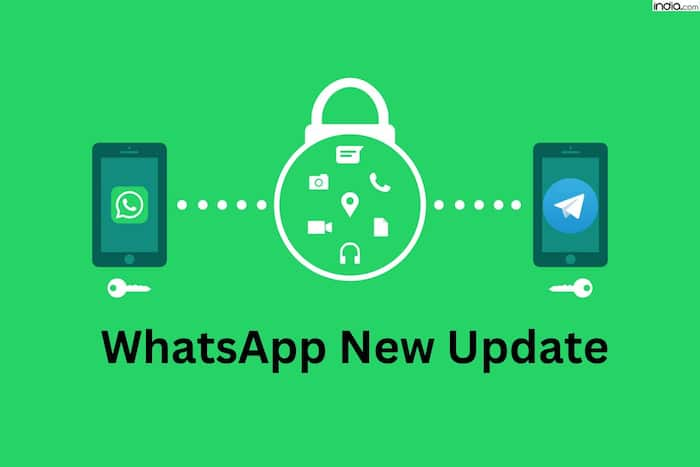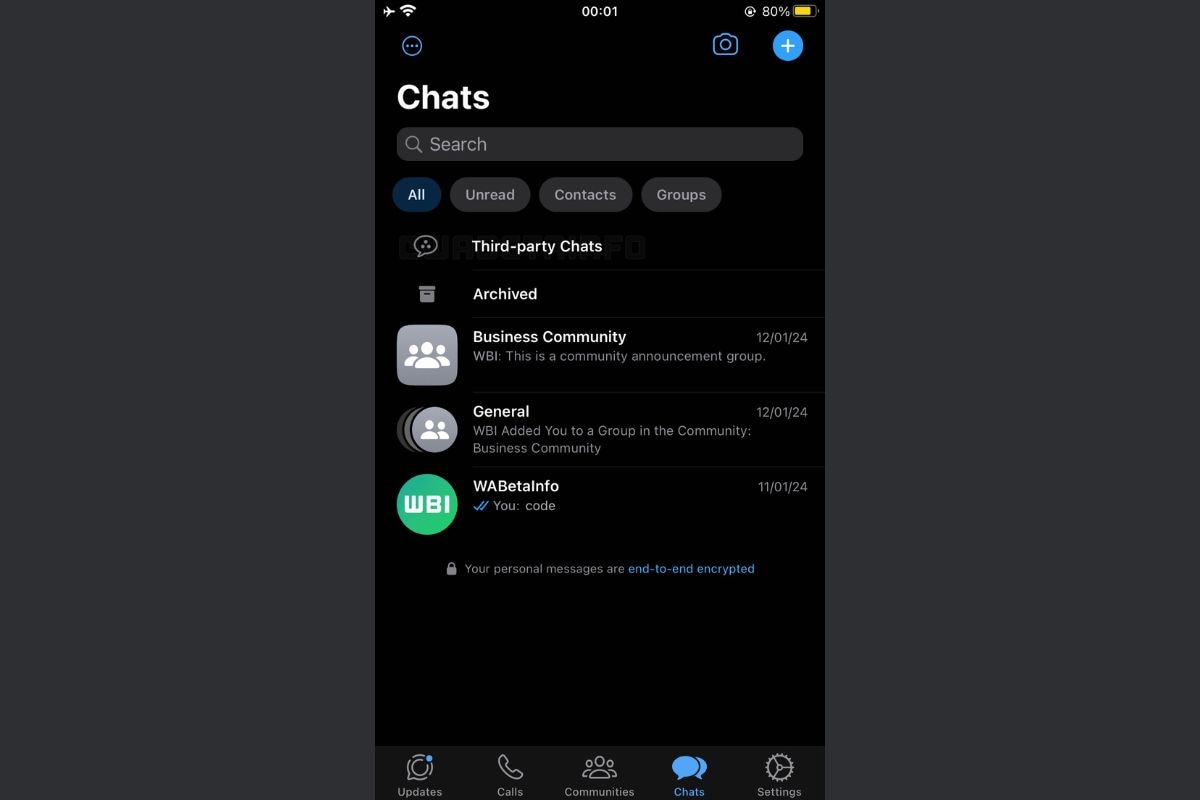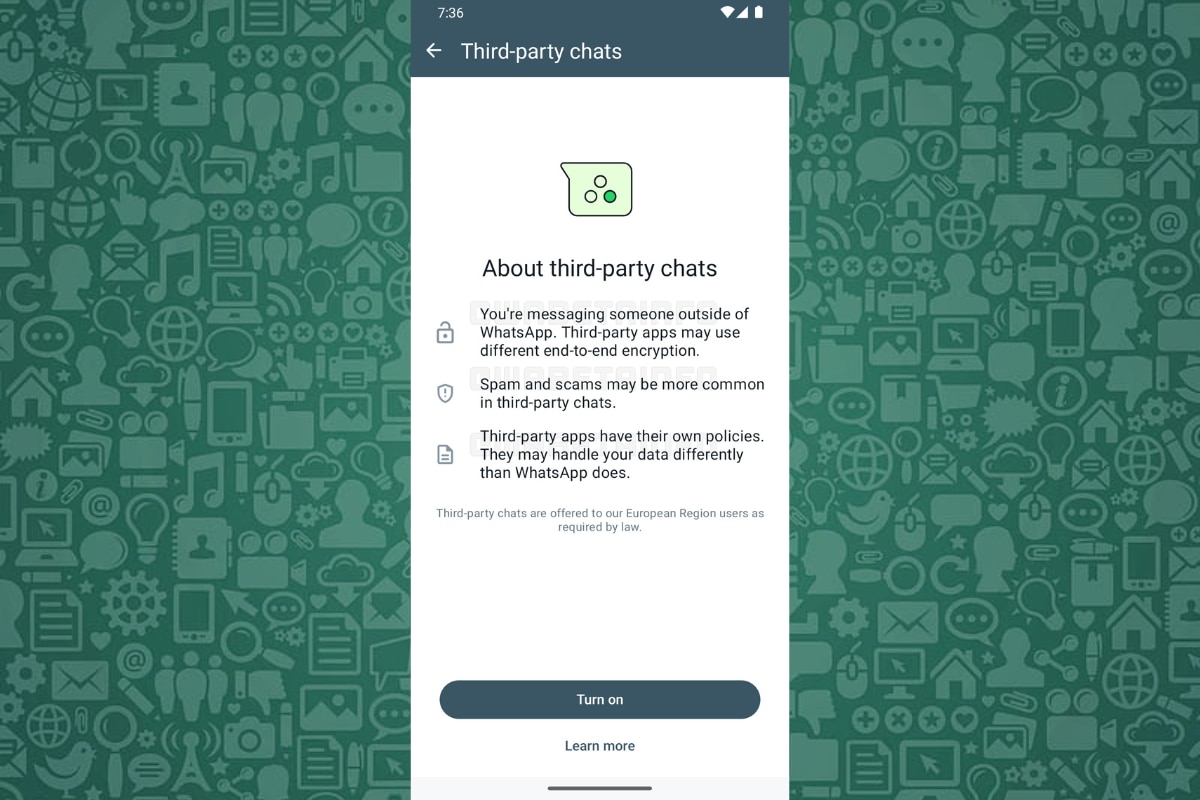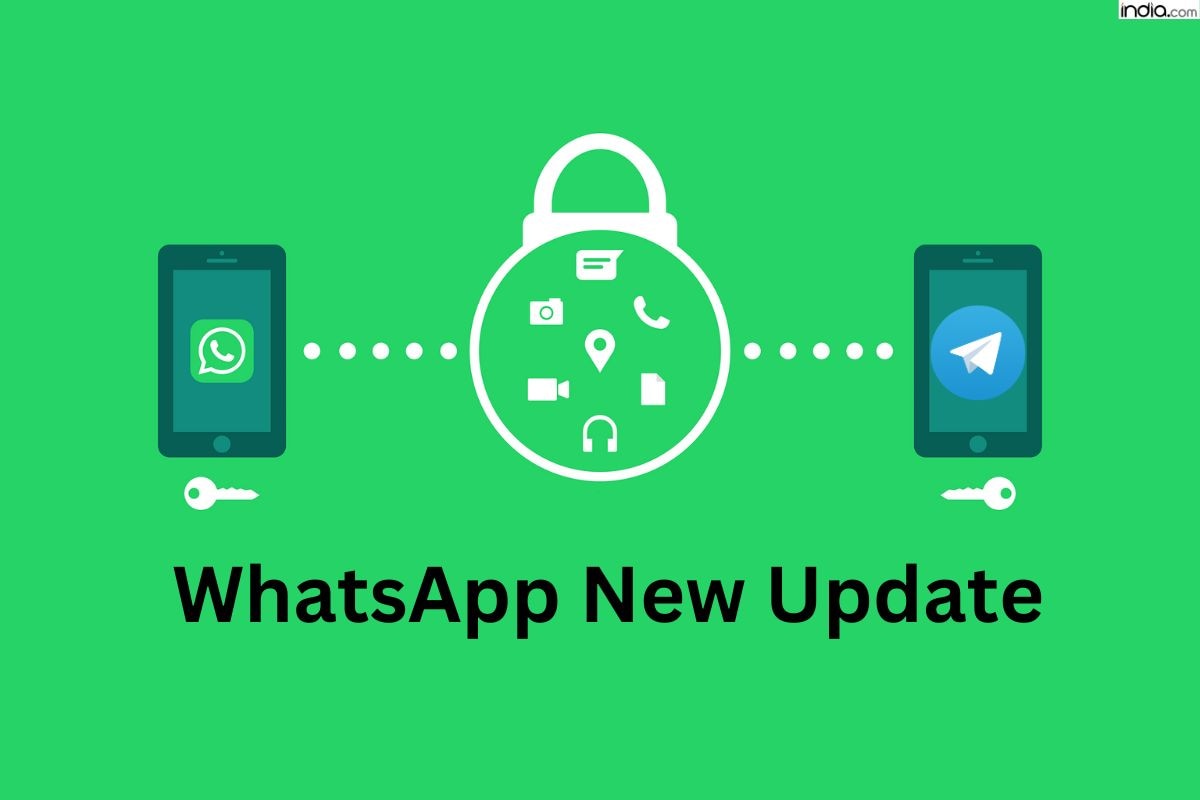WhatsApp is finally testing its new ‘Third Party Chat’ feature, which would allow cross platform messaging between apps. Currently in beta testing, it will soon roll out to stable builds of the app.

New Delhi: Meta-owned WhatsApp was working on a chat interoperability feature to comply with recent EU regulations and has now gradually started rolling out the update with an initial release to beta version users. WhatsApp is one of the most used messaging platforms, with around 2.78 billion active users around the globe and this new feature would allow its users to interact with messages from third-party messaging apps such as Telegram, Signal, etc. WhatsApp was working on a chat interoperability feature to comply with new EU regulations.
Check out all the details on the upcoming ‘Third-party chats’ feature of WhatsApp.
The New WhatsApp Third-Party Chats Feature

WhatsApp’s third-party chat feature is currently being tested in the beta version. (Source: WABetaInfo)
In an upcoming update, users will have the option to activate third-party support for their account through a new area that WhatsApp is testing, as reported by WABetaInfo. Users will be able to message individuals outside of WhatsApp thanks to this capability. Third-party apps may employ a different end-to-end encryption mechanism, even if end-to-end encryption needs to be maintained in messaging systems that are compatible. These conversations will therefore appear in a separate inbox under the chats tab. Additionally, WhatsApp warns users to exercise caution while conversing with others via third-party chats since scams and spam may be more prevalent in these situations where the user’s name and photo are hidden. Additionally, since third-party apps are governed by their own policies, it is possible that they manage data differently than WhatsApp does.
Benefits of WhatsApp’s Third-Party Chats Feature

Users will be able to chat with others on WhatsApp using various messaging apps, even if they don’t have a WhatsApp account. (Image: WABetaInfo)
The benefits of this feature for users include:
- Increased communication flexibility: Users will be able to communicate with others on WhatsApp using different messaging platforms, making it easier to connect with friends and colleagues who use different apps.
- Improved user experience: The interoperability feature enables someone on a different messaging app to send messages to a WhatsApp user, even without a WhatsApp account. This means users can maintain their preferred messaging app while still being able to communicate with others on WhatsApp.
- User control: Users will have to manually enable the interoperability service and have the option to opt out, as stipulated in Article 7 of the regulations. This ensures that users have control over their communication preferences and privacy settings.
Moving towards interoperability is a big step for WhatsApp in terms of complying with EU laws and giving users more flexible ways to communicate. Even without a WhatsApp account, users in the European region will be able to communicate with people on the messaging service through a variety of messaging apps. It is crucial to remember that, as stated in Article 7 of the regulations, consumers may choose to opt out of this function, which means they must manually activate the interoperability service.

